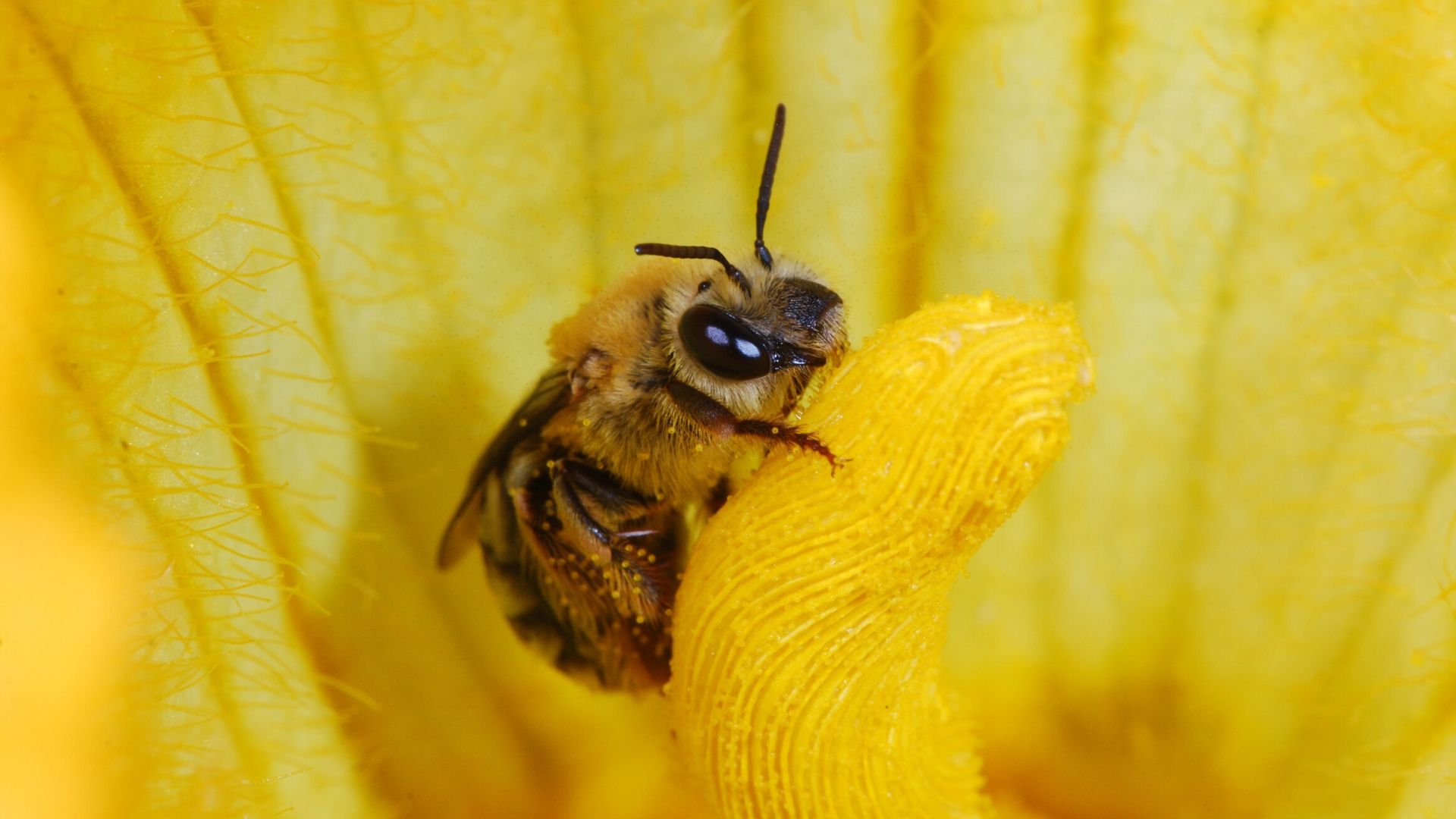Have you heard the buzz lately?
Spring has returned, and so have the bees!
Dr. Avery Russell, assistant professor of biology and bee expert at Missouri State University, provides his professional insight on all-things bees.
Protection is vital
Bumble bee species in North America are in danger.
“They are facing threats from disease, pesticides and agriculture,” Russell said. “Within the last 25 years, at least four of our 50 North American species have experienced declines in populations of more than 96%.”
These threats are concerning, as bees are among some of the most needed types of animals – pollinators.
“More than 80% of flowering plants require animal pollination,” Russell said. “Many bees have specialized relationships with plants, such that they depend on specific types of bees to be pollinated.
“Without diverse bee populations, many of the plants we depend on in agriculture would fail to set fruit. And in natural landscapes, we’d lose many of the plant species and animal species which depend on those plants or interact with bees indirectly.”
Thankfully, Russell says there are ways we can help.
Ditch your lawn
Russell says to help the bees, ditching your lawn is a great first step.
“Get rid of your lawn, stop using pesticides and plant native wildflowers,” he said. “You can also leave a messier garden with bare ground, twigs and old stems for ground and stem nesting bees.”
A University of California-Davis study found pesticides hurt both larval and adult bees – double the reason to not use them on your pollinating plants.
The Missouri Botanical Gardens has a guide to Missouri-native wildflowers, including potting directions, to help you get started.
Some fun facts about bees
Not all bees sting
Don’t be scared when you hear bees buzzing around you outside.
“It’s a very common misconception that all bees have stingers,” Russell said. “But truth is, they don’t. Males, or drones, do not have stingers, and neither do the approximately 550 so-called stingless bee species.”
Bees rarely sting, and only will if they are provoked. So don’t swat, just leave them alone.
Most are antisocial
When we think of bees, we think of colonies. But most bees actually thrive on their own.
“90% of bee species are solitary, with single moms supplying their larvae,” Russell said.
Not every bee is the same
There are over 450 species of bees in Missouri, including honeybees, bumble bees, carpenter bees and others.
The Missouri Department of Conservation and the St. Louis Zoo have created a handy visual guide to Missouri bee identification.
The Russell Lab
Are you interested in studying bees?
In addition to ‘bee’-ing the bee expert on campus, Russell runs a research lab focused on all-things bees.
“The Russell Lab is strongly focused on building belonging and providing a safe environment for folks to learn and teach each other to be better people and scientists,” he said. “Our research focuses on bee learning and memory, how bacteria and fungi affect bee behavior, how behavior affects the movement of microbes among flowers, how flowers manipulate bees and finally how flower characteristics and bee behaviors evolve and affect their success.”
Many students in his lab have presented their research at various conferences nationwide.

